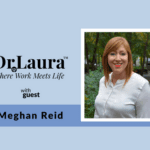What is Burnout?
While many assume burnout is related to feelings of extreme fatigue, there is more to burnout than being tired. Burnout is actually a three-dimensional state of ill-being involving exhaustion, cynicism and reduced professional efficacy in the workplace.[1]
Let’s get into what each of these mean.

- Exhaustion: feeling fatigue due to work
- Cynicism: refers to a negative or detached response to work and/or colleagues
- Reduced professional efficacy: feeling of reduced competence or achievement
If you’re not experiencing burnout what else might it be?[3] [4] [5]
- Overextension: if you have strong feelings of exhaustion only from your workload, you may be described as overextended.
- Disengagement: if you solely have feelings of cynicism, you may be described as disengaged.
- Reduced Efficacy: experiencing feelings of reduced professional efficacy only
- Workaholism: if you are experiencing exhaustion, cynicism, reduced professional efficacy and high work engagement. If you are tired, have negative moods, have feelings of reduced competence but are still driven and motivated you may be experiencing workaholism.
Does one of these sound like something you are experiencing in the workplace?
Your work and life well-being are important. It can be helpful to identify what you are experiencing to then incorporate tailored strategies to overcome your unique stressors and difficulties. For some, that may include changes to how you are working or integrating strategies related to self-care, boundary setting and communication. For others, a role or career change may be needed, and it can be helpful to create a plan with a career counsellor to make a career transition.
If you want to discuss any of this further with a counsellor, you can call the office at (403) 261-5085 or email us at [email protected] to schedule a free 15-minute consultation. You may be able to use your insurance plan or extended health benefits to cover counselling and assessment fees.
[1] Maslach, C., Jackson, S., & Leiter, M. (1996). Burnout inventory manual. Palo Alto, CA: Consulting Psychologists.
[2] Bakker, A. B., & Costa, P. L. (2014). Chronic job burnout and daily functioning: A theoretical analysis. Burnout Research, 1(3), 112-119.
[3] Leiter, M. P., & Maslach, C. (2016). Latent burnout profiles: A new approach to understanding the burnout experience. Burnout Research, 3(4), 89-100.
[4] Schaufeli, W. B., Taris, T. W., & Van Rhenen, W. (2008). Workaholism, burnout, and work engagement: Three of a kind or three different kinds of employee well‐being?. Applied psychology, 57(2), 173-203.
[5] Upadyaya, K., Vartiainen, M., & Salmela-Aro, K. (2016). From job demands and resources to work engagement, burnout, life satisfaction, depressive symptoms, and occupational health. Burnout Research, 3(4), 101-108.






